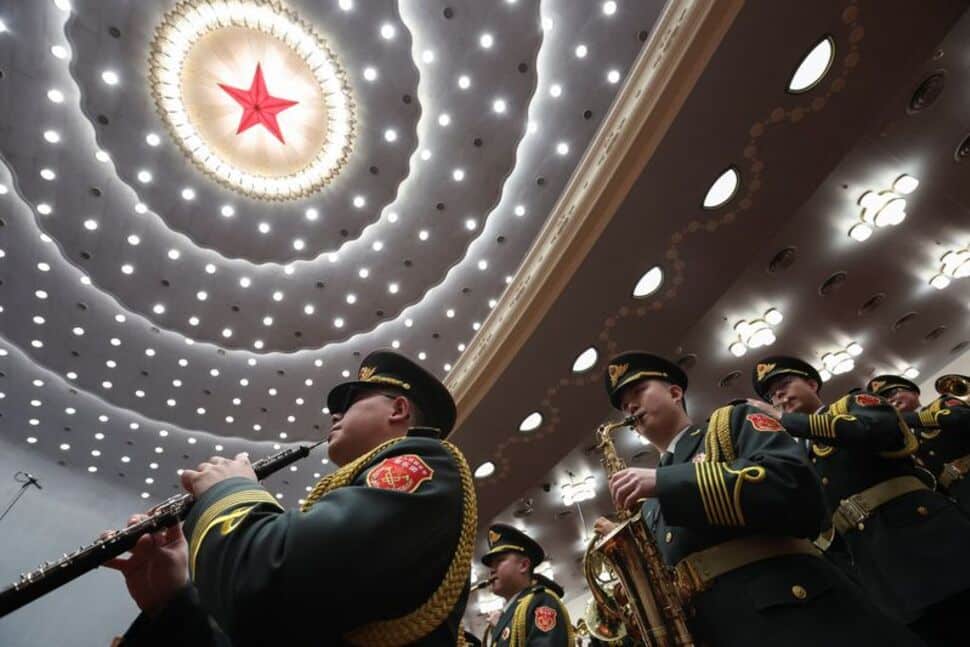Breaking Tradition: China Dumps Annual Media Meeting Press Conference
China has surprisingly broken from a tradition that lasted for decades by stating that on March 4th, 2024, there would be no press conference following the annual National People’s Congress (NPC) meeting by the Premier, China’s number two official. This action represents a major change in the way the Chinese government relates with the foreign media.
A Thirty-Year Legacy Ends
During the last three decades, the Premier’s press conference has been a special place for Chinese and foreign journalists to ask questions to an important leader of China. Such transparency though only partially lets the global community see something of the official position of China on different issues.
Surprise Amidst Uncertainty
This unexpected termination of the conference is very time-critical for China. The country is under pressure from the economic winds with a possible slowdown in view. In addition, there are growing tensions with the United States and other countries that compound the global uncertainty.
The reasons for the Cancellation are Uncertain
There is no clear explanation from the Chinese government why the press conference has been canceled. Such opaqueness has led to some suggestions, with some analysts suggesting a failure to want to face difficult questions on the economy and international affairs as one probable motive.
Shifting Communication Strategies?
An alternative to this may be that China is searching for other ways of interacting with the world. This might imply a greater focus on state-controlled media or specific messaging through diplomatic avenues.
International Press Conference in the Dark
The lack of press conferences renders international journalists with limited sources of official perceptions from the Chinese leadership. This may prevent them from providing objective and extensive coverage of China’s developments.
Transparency Concerns Raised
The cancellation has prompted concerns over transparency and accountability in the Chinese government. It is contended by critics that such a decision would only make access to information even more restrictive and limit possible public inspection.
Global perception of China is affected
The absence of a forum for face-to-face meetings with top leaders might streamline the picture of China’s policies and priorities to the international community. This could cause severe issues in diplomatic and economic connections with other countries.
Here’s a summary of what happened: Here’s a summary of what happened

- The annual news conference usually held by the Premier at the end of the National People’s Congress (NPC) was canceled by China.
- This was the only time when the conference wasn’t organized in the last 30 years.
- The Premier is China’s second highest-ranking official so this conference was an unusual opportunity for journalists to question such a senior leader.
- China is also experiencing economic uncertainty and increased tension with other countries.
The future of information access remains unpredictable
The long-term consequences of this decision for information availability in China are unknown. Whether this is an isolated occurrence or signifies a larger change in communication stratagems is still to be determined.
An Open Discussion Call
Indeed, the cancellation of the press conference elucidates how openness and information accessibility play a major role in today’s world. Sustaining channels of interaction, even in the face of obstacles, is necessary for building trust and overcoming international intricacies.
Domestic Media Focus
Despite the limited access to international journalists, the cancellation would not have much effect on the domestic media coverage. The Chinese state controls the nation’s domestic media, dictating what is published and how the news is represented. This prompts questions about the potential for diverse viewpoints and critical debate within China.
Internationalized response
The international community has given divergent reactions to the call-off. Questioning the lack of transparency that the act represents by some, others have taken a sit-on-the-fence attitude. The international media is likely to seek other means of collecting information and views from China.
Potential Implications for Diplomacy
Cancellation may result in more difficulties in diplomatic ties. In the absence of a press conference as a form of direct addressing trust and acceptance through open communication can be substantially more challenging. Thus, this could make negotiations and international cooperation on several problems more complex.
Looking Ahead: Futurum Engagement
The engagement of China with the outside world continues to be in doubt. Irrespective of the path chosen by China, information access complexity in the years to come would require that the country address the importance of open dialogue.
Adaptability and Collaboration Required
It is in this regard that the international media organizations and journalists will now have to re-strategize in their information gathering and reporting on China. Collaboration and information exchange between journalists and researchers have a crucial role in the provision of full and proper coverage.
Conclusion
The sudden termination of the Premier’s press conference by China raises important issues of transparency, accountability, and access to information in what is the world’s second-largest economy. Though the full effect of this event is yet to be revealed, it is surely a new era in the way the international system gets China’s official views on various matters.

